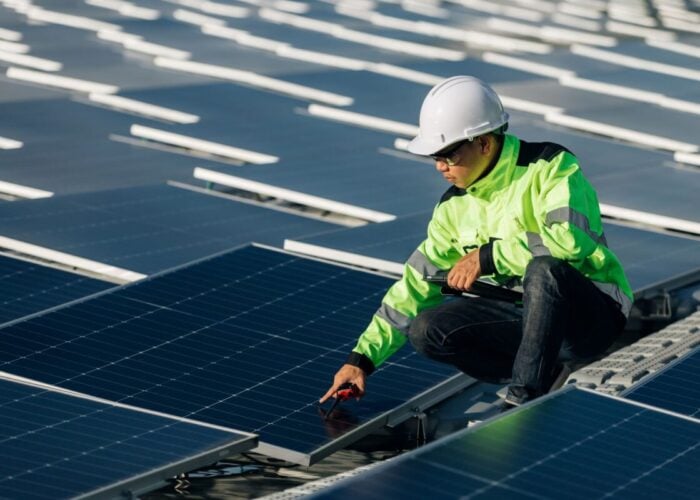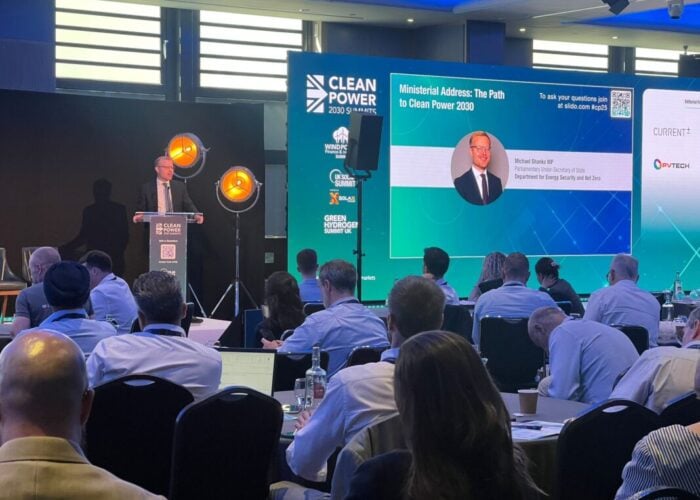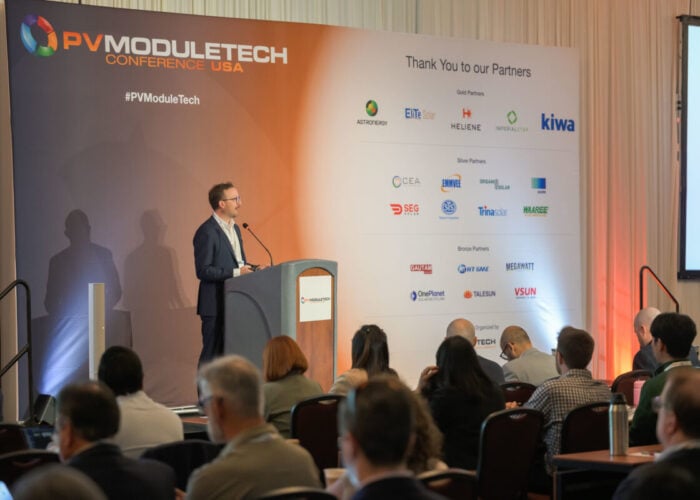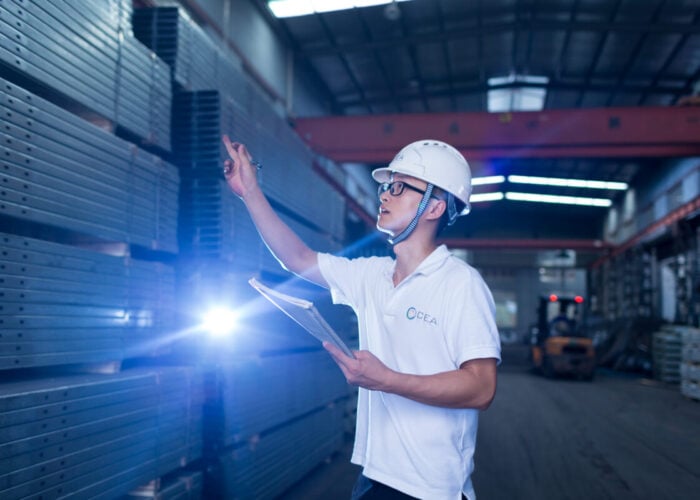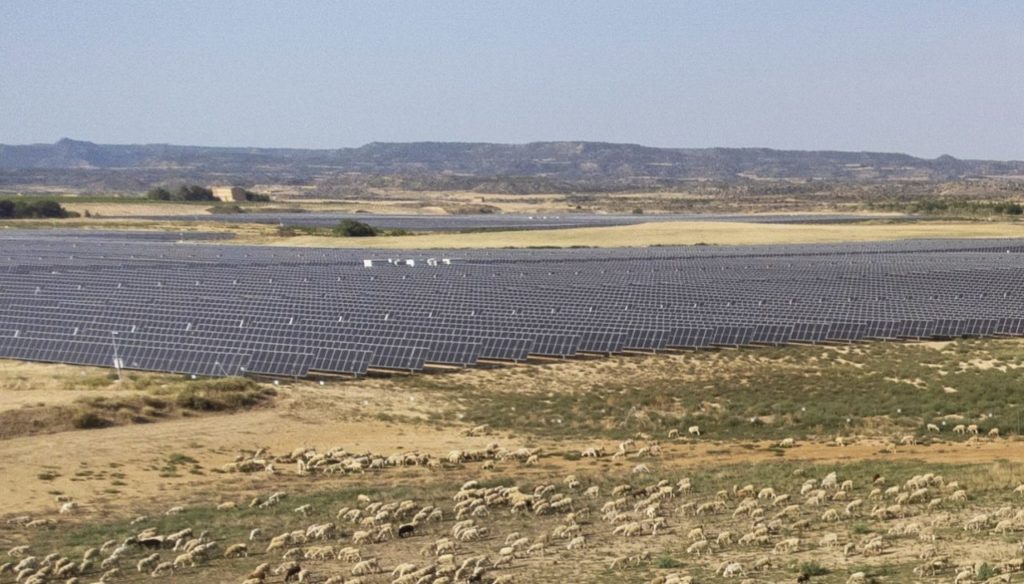
ESG is now at the centre of many investor requirements when it comes to finalising deals, and while solar is obviously a destination of choice from an environmental perspective, that is only part of the puzzle. Galp’s head of Renewable Energy Innovation Centre Emilien Simonot and its environment and CSR manager Claudia Montenegro detail the essential considerations for the solar industry from an ESG perspective.
The importance of environmental, social and governance (ESG) strategy for businesses worldwide has gained higher relevance in recent years, due to the growing importance of non-financial metrics in qualifying projects, companies or initiatives.
Unlock unlimited access for 12 whole months of distinctive global analysis
Photovoltaics International is now included.
- Regular insight and analysis of the industry’s biggest developments
- In-depth interviews with the industry’s leading figures
- Unlimited digital access to the PV Tech Power journal catalogue
- Unlimited digital access to the Photovoltaics International journal catalogue
- Access to more than 1,000 technical papers
- Discounts on Solar Media’s portfolio of events, in-person and virtual
While renewables in general and solar PV in particular are already well positioned to contribute to the energy transition, they are not without their own challenges. The sector is working towards the incorporation of better practices however, especially as renewable project development is speeding up. In this context, the PV value chain is experiencing a series of challenges both globally and locally with regards to ESG.
PV sector ESG challenges
In the past, the acceleration of PV installation rates in all segments, utility-scale solar or self-consumption, has come together with the necessary development of the supply chains for PV equipment as well as the adequate global logistics network. This has led to several situations and challenges related to the supply of equipment and, in particular, modules, where buyers and end users, especially in the EU have become vulnerable to changes in delivery conditions, all in all affecting the profitability of the projects and increasing risks.
As PV has now become a strategic value chain for the future of energy supply globally, triggered by the current and short-term fossil energy market challenges and their longer-term expected phasing out, governments and policymakers should act accordingly to reduce the current vulnerability of supply chains and to develop more resilient options.
On the other side, with PV ramping up strongly and becoming a mainstream power generation technology, it is to be noted that the current socio-environmental footprint has also recently raised questions that must be considered as countries and the private sector are developing the future supply chain needed to cover a market that will keep growing in all geographies. Questions like resilience of supply, CO2 footprint, natural resources, biodiversity and labour conditions will all contribute to the competitiveness and reputation of the whole PV value chain.
At the other end of the value chain, PV power plants and solar farms are being deployed at a high pace, often representing the materialisation of government and private sector commitment to mitigate global warming impacts. Those industrial projects are very strictly regulated and required to be duly authorised from several administrations. While the first plants were celebrated under the prisms of innovation or climate action, the real and material switch from fossil-based generation to low carbon and renewables will require a massive deployment of distributed infrastructure across rural territories, not only the vast areas of land to be used for renewable generation but also the necessary evacuation infrastructure, like power lines. In countries where the PV sector is most advanced, like southern European countries, these sometimes-rapid developments start to generate some rejection from local communities concerned about the social or biodiversity impacts.
Galp’s approach to ESG
Galp is a recent player in the field, having started deployment of renewable capacity in 2019, but is already a top three operator of PV installations in the Iberian Peninsula with a development pipeline across the EU and Latin America.
In our last strategy refresh, the accent was put on the integration of fundamental principles of sustainability into our culture, strategy, management and activities as well as in refreshing our relationship with society and communities and providing innovative energy solutions and technological development, whilst caring for the people and the planet. A consequence of this is the integration of ESG requirements into our decision-making processes through all our organisational units that are associated with the development stages across the full project lifecycle in order to ensure alignment with sustainability strategy, commitments and targets.
These commitments answer the material issues and Sustainable Development Goals (SDGs), particularly those which Galp’s operations impact the most since they are shared and integrated in its everyday activity: (SDG7) affordable and clean energy, (SDG8) decent work and economic growth, (SDG9) industry, innovation and infrastructure, (SDG12) responsible consumption and production, (SDG13) climate action and (SDG17) partnerships for the goals.
Applying sustainability principles to everything we do is the responsible way in which we want to operate in the renewables business. We are developing projects that promote social and environmental positive impact and improve stakeholder engagement. At the same time, we are reinforcing the internal corporate culture of environmental and social responsibility, helping to consolidate Galp’s reputation for sustainable development and energy transition.
At the governance level, we integrate sustainability principles into the Galp Group management process, promoting industry best practices in all of its activities, with a view to long-term value creation. Galp has several specialised committees that assist the company’s day-to-day management by implementing and ensuring certain practices and principles underlying our corporate strategy, including sustainability and innovation.
We also work in partnerships, sharing the value we create with society. Galp believes that it is well positioned for the future, guided by its sustainability commitments, approved by senior management and understood throughout our organisation.
Answers to solar’s ESG challenges
Based on our ESG approach, we are building a general sustainability strategy, which will apply to all portfolios of renewables projects. This strategy is sponsored by top management and supported by a multi-disciplinary team. A special focus is put on innovation to continuously enrich the approach and develop initiatives enabled by third parties that can add values, skills and competencies, with the goal to create value for the communities in a structured, systematic and replicable way.
The strategy is articulated along the following dimensions:
- Creation of shared value for our host communities to achieve a just energy transition
- Ecosystem respect and integration of our activities
- Supply chain excellence approach promoting circularity principles and good practices
- Innovation: we truly believe that we can develop, test and incorporate new solutions to enrich our vision and practices
For this, we are acting in different fields, leveraging science, education and training, access to clean and reliable energy solutions and improving the application of circularity principles beyond others. This work is a unique opportunity to diversify our understanding of our projects and portfolio: besides the classical financial and technical perspectives, we now have also understanding of our impacts on the local economy, biodiversity and social dynamics and we can develop solutions and concepts for mitigation actions (no net loss) with the ambition to reach net gain (i.e. proactive biodiversity improvement actions).
An important part of our strategy is its structured approach and its “replicability by design”. Especially when it comes to our work with communities, replicability is a key parameter to ensure an impact everywhere we go and at scale.
For this, we consider the following areas of work:
- Access to sustainable energy solutions: as an integrated energy company developing and commercialising products in the whole energy value chain, we develop specific actions and special offers to ensure that our host communities can access them: solar rooftop self-consumption installations, low-carbon mobility solutions, etc.
- Education and capacity building in a win-win approach as the massive deployment of renewables will bring strong needs for trained staff.
- Ecosystem integration through the elaboration and incorporation of best-in-class renaturalisation techniques in partnership with local specialists (universities and research centres) as well as the testing of agrivoltaics solutions.
Besides these, we also acknowledge that every community is different and has its own needs. Therefore, our local managers have the mandate to interact with local authorities or entities (associations, charities, etc.) to identify meaningful projects aligned with our goal to “promote a fair and just energy transition”. Galp aims to raise awareness and enable local communities to understand what a just and fair energy transition means at their level; in their context and the changes it supposes in their daily life. This empowers them to understand the changes needed and the shift to action. Proposing support along this process and materialising it through real and concrete projects turned Galp into a change originator.
Regarding the value chain challenges, Galp does consider them as an extremely relevant area that requires action. Galp is already including high selection standards in its procurement processes for PV equipment, but we acknowledge that individual and isolated initiatives will not bring significant solutions in the timeframe needed. We are supportive of the diversification of the supply chain to mitigate the current risks linked to supply, and we observe with interest policymaking moves for the reshoring of the value chain in geographies like the US or the EU.
PV is becoming a mainstream source of power generation, as it is the cheapest source of energy on earth, and it is adaptable and highly scalable. While it is variable, it can be hybridised with wind or storage technologies to deliver clean power at scale. For PV to have it all, the ESG challenges addressed in this piece must be applicable throughout the whole life cycle of projects so they do not convert into business risks that could hinder the swift development of these amazing power generation technologies.
While we have reviewed how a company like Galp is approaching those challenges, we also acknowledge the limitations of an isolated approach as those challenges have to be solved by the sector as a whole, including not only companies and the private sector but also policymakers and society as a whole.

